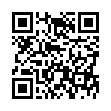Record Online Meetings in Pear Note
While Pear Note is primarily geared toward recording notes in the physical world, it's possible to use it to record things in the virtual world as well. For instance, you can use it to record and take notes on Skype calls. To do this:
- Download Soundflower and install it (along with the Soundflowerbed app that comes with it).
- Download LineIn and install it.
- Start Soundflowerbed, and select Built-in Output (or whatever output you'd like to listen to the conversation on).
- Start LineIn, and select your microphone (e.g. Built-in Mic) as the input and Soundflower (2ch) as the output, then press Pass Thru.
- Open Pear Note Preferences, select Recording, and select Soundflower (2ch) as the audio device.
- Open Skype Preferences, select Audio, and select Soundflower (2ch) as the audio output and your microphone (e.g. Built-in Mic) as the audio input.
- Hit record in Pear Note and make your Skype call.
This will allow you to conduct your Skype call while Pear Note records both your audio and the other participant's.
Visit Useful Fruit Software
Written by
Adam C. Engst
Recent TidBITS Talk Discussions
- Alternatives to MobileMe for syncing calendars between iPad/Mac (1 message)
- Free anti-virus for the Mac (20 messages)
- iTunes 10 syncing iPod Touch 4.1 (2 messages)
- Thoughts about Ping (16 messages)
Related Articles
- Communications Decency Act Follow-Up (06 Mar 95)
- Dressing for Decency (27 Mar 95)
- Decency's in the Eye of the Beholder (29 May 95)
- "Decency" Act Passes Senate (19 Jun 95)
Published in TidBITS 263.
Subscribe to our weekly email edition.
- Net Valentines
- The Apple Multimedia Kit
- QuickDraw GX
- Trying to reach
- A number of Mac programming wizards
- Talking Into The Mouse: Hollywood And Computers
- Apple Sues Intel, Microsoft - Again
- Resourceful Apprentice
- Nisus Writer 4.0.6, Part 1: Text Processing
Communications Decency Act of 1995
In a move that's incited all manner of protest throughout the Internet community (and especially among Internet providers), Senator Jim Exon of Nebraska has introduced Senate bill 314, titled The Communications Decency Act of 1995. This bill would expand current FCC regulations on "obscene" and "indecent" telephony and telegraphy to cover any content carried by all forms of electronic communications networks. This would place significant criminal liability on telecommunications and network providers if their network was used in the transmission of any material deemed to be "obscene, lewd, lascivious, filthy, or indecent," as provided under the Communications Act of 1934.
http://www.eff.org/pub/EFF/Legislation/Bills_ new/s314.bill
http://thomas.loc.gov/home/c104query.html
Essentially, if enacted, this bill would compel Internet providers to restrict the activities of their users (for instance, by preventing them from using email, conferencing services, Usenet, FTP, and the like), or to monitor every private communication, file transmission, email message, news posting, etc., to ensure no activity for which they could be held liable was taking place. Penalties provided under this bill are up to two years in prison or $100,000 in fines. The text of S. 314 appears to be substantially identical to S. 1822 of the 103rd Congress, offered by Senator Exon last year and which failed with the Senate Telecommunications Reform bill. However, given the more conservative tone of the 104th Congress and legislators' growing unwillingness to oppose "morality" legislation of this nature, S. 314's chances of eventual passage may be substantially better.
Although it's not likely many people would favor legalizing email harassment (in the same way most people don't seem to think telephone harassment should be legal), S. 314 holds service providers liable for the "decency" of materials transferred through their networks. To draw a parallel, a real-world equivalent of this bill could mean holding the builder of a street liable for armed robbery because someone used that road to transport stolen goods from a crime scene. Under S. 314, the only exceptions to this bill would be government-decreed common carriers like telephone companies. Although U.S. legal standards of decency and obscenity have been matters of controversy since the nation's founding, there is concern amongst the online community that such legislation could suppress open discussion of often-controversial issues such as homosexuality, abortion, controlled substances, or abuse.
According to the most recent edition of the Electronic Frontier Foundation's EFFector Online, Senator Exon and his staff may not have been aware that the text of their bill had such broad potential for criminalization and a rewrite is apparently being considered. Senator Exon seems to have been motivated to introduce this bill in response to incidents of "Internet stalking" and email harassment, such as a current case involving a University of Michigan student posting a fictional story of rape and sexual torture.
http://www.eff.org/pub/EFF/Newsletters/EFFector /effect08.01
Contact information for the Senate Commerce Committee and Senator Exon can be found on a variety of sites around the net; a pointer to CapWeb is included below. Discussion of S. 314 can be found on the newsgroups <comp.org.eff.talk> and <comp.org.cpsr.talk>.
http://policy.net/capweb/Senate/SenateCom/ COM.html
Information from:
EFFector Online, 10-Feb-95
Electronic Messaging Association
Pythaeus
 StuffIt Deluxe 2011 has everything you need to backup, encrypt,
StuffIt Deluxe 2011 has everything you need to backup, encrypt,share, and compress all of your photos, audio and documents.
Compress it. Secure it. Send it. Try StuffIt Deluxe 2011 today!
Click here for a free 30-day trial: <http://stuffIt.com/tidbits/>


